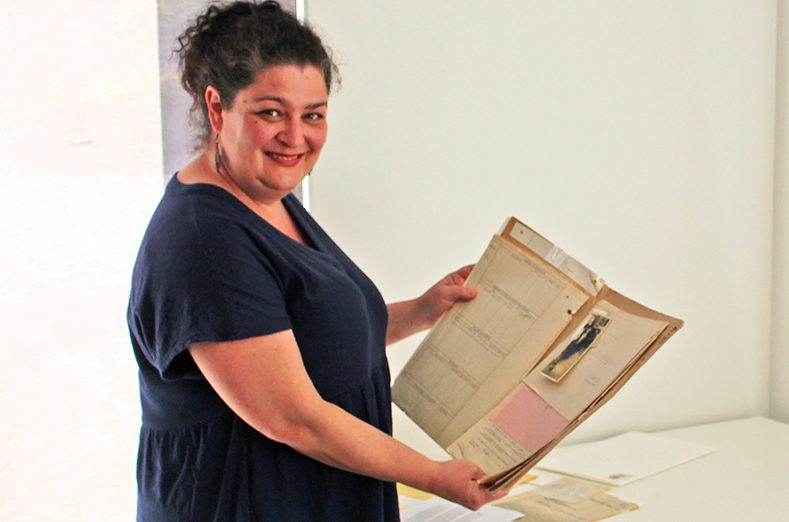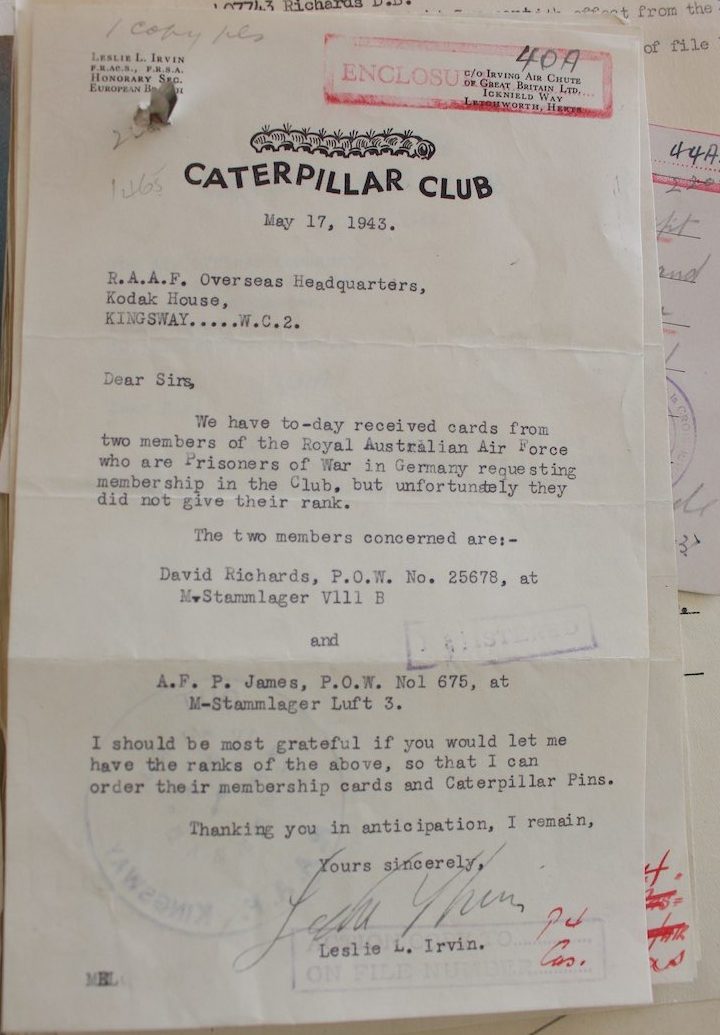
THE National Archives of Australia has reached a significant milestone, having digitised more than one million World War II records.
These include names, photos, enlistments, movements, transfers, promotions and fates, which are now being made available online free-of-charge.
Digitisation project manager Rebecca Penna, 44, says the importance of these digital records is to commemorate or acknowledge the amazing sacrifices that people made.
“I also think they provide you with insight to what stories these records tell, and the impact of what they left behind,” she says.
“You can see struggling businesses writing to say they need the soldier back, or family letters saying they now have 200 sheep they can’t possibly shear without help.”
Rebecca says the paper records are now up to 80 years old, they are fragile.
“They are getting some age up, so digitising them also means we’ve got them forever,” she says.
“The paper records can just go back into their boxes in specially controlled storage and just be looked after.
“People can still access the originals, but it just means that for people who can’t visit or are overseas, they can have access now, too.”
While the National Archives has been slowly digitising these records on and off for 20 years, Rebecca says dedicated funding in recent years has helped the process along.
In 2019, the Australian government allocated $10 million in funding to help the Archives digitise the remaining 852,000 World War II records, 200,000 had already been preserved.
“In addition to government funding, a further $1 million was donated by a long-time supporter and philanthropist, Barbara Mason,” says Rebecca.
“This donation is being used to digitise the photographic portraits stored on the World War II service files, helping the National Archives to put a face to the name.”
She says they were fortunate over covid in that two digital providers, Micro Image and FujiFilm, were exempt from lockdowns and were able to continue the work.
“We got to a point where we’d have two staff coming in, getting trolleys of records and preparing them to go out for digitisation, and moving them into the quarantine room,” says
While it is expected the records will be accessed by family historians, having the digitisation has allowed for more data-specific research to be undertaken.
“When you have a whole group of the records digitised, it opens up to people doing a search in the data that we have, like the titles we have on record or the place of enlistment, potentially researching how many people in Moss Vale, NSW, enlisted,” says Rebecca.
“It sort of starts to now mean that people can do more studies into looking at multiple records at once. I think that’s the great thing about having this volume of records more accessible.”
The amazing thing, and what motivates Rebecca’s passion, is the stories she has come across.
“These records, 80-years-old, are still having an impact on daily life now.

“There is one story that has really struck me in this process, it’s just bizarre, about David Richards.
“David was in the Royal Australian Air Force and he was undertaking a mission over Germany when he was shot down, but he parachuted out of his plane and survived, before he was eventually captured and put into a prisoner-of-war camp.
“That’s kind of a bit remarkable in itself. We found a couple of things in his file, he was writing from the POW camp, acknowledging receipt of a clothing parcel and tobacco from the Red Cross, but then it took on a whole other level.
“We then found a letter to The Caterpillar Club. What we found was there’s a club, The Caterpillar Club, that was set up by Leslie Irvin, a parachute manufacturer. The motto of The Caterpillar Club was ‘life depends on a silken thread’, and so the idea was you could join the club if you had come out of a plane that was catastrophic and survived, and you get this little, gold, caterpillar pin, with little ruby eyes.”
Rebecca says it’s been a wonderful opportunity for her as project manager, and she feels privileged to be a part of the process.
“I love history, I’m just excited by life and I’m proud to be a custodian of those records,” she says.
Who can be trusted?
In a world of spin and confusion, there’s never been a more important time to support independent journalism in Canberra.
If you trust our work online and want to enforce the power of independent voices, I invite you to make a small contribution.
Every dollar of support is invested back into our journalism to help keep citynews.com.au strong and free.
Thank you,
Ian Meikle, editor









Leave a Reply